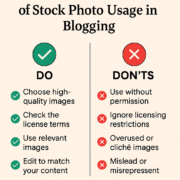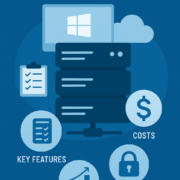How Digital HR is Transforming Employee Experience?
In the rapidly evolving landscape of modern business, the role of Human Resources (HR) has undergone a significant transformation. The advent of digital technologies has ushered in a new era of HR management, commonly referred to as Digital HR. This shift is not just about adopting new tools; it’s about reimagining the entire employee experience from recruitment to retirement. In this article, we’ll explore how Digital HR is revolutionizing the way organizations interact with their workforce, enhancing engagement, productivity, and overall job satisfaction.
The Digital HR Revolution
Digital HR leverages technology to streamline HR processes, making them more efficient, data-driven, and employee-centric. It encompasses a wide range of tools and strategies, including cloud-based HR information systems (HRIS), artificial intelligence (AI), machine learning, and advanced analytics. These technologies are not just changing how HR functions operate; they’re fundamentally altering how employees interact with their organization throughout their entire career journey.
Reimagining Recruitment and Onboarding
The transformation begins with the very first touchpoint between an organization and a potential employee. Digital HR has revolutionized the recruitment process through:
- AI-Powered Candidate Matching: Sophisticated algorithms can now scan resumes and match candidates to job openings with unprecedented accuracy, saving time for both recruiters and applicants.
- Virtual Reality (VR) Job Previews: Some companies are using VR technology to give candidates a realistic preview of their potential work environment and job responsibilities.
- Chatbots for Initial Screening: AI-driven chatbots can handle initial candidate queries and screening, providing a responsive and efficient first point of contact.
Once a candidate is hired, digital onboarding processes ensure a smooth transition into the organization. Digital employee handbooks, virtual office tours, and online training modules allow new hires to absorb information at their own pace while feeling connected to their new workplace from day one.
Enhancing Employee Development and Learning
Digital HR is transforming how employees grow and develop within an organization:
- Personalized Learning Paths: AI algorithms can analyze an employee’s skills, performance, and career goals to suggest tailored learning experiences.
- Microlearning Platforms: Bite-sized, on-demand learning modules cater to the modern employee’s need for flexible, just-in-time learning.
- Virtual Reality Training: From soft skills to complex technical procedures, VR is providing immersive, risk-free environments for employees to practice and learn.
Revolutionizing Performance Management
The annual performance review is becoming a relic of the past, thanks to Digital HR innovations:
- Continuous Feedback Systems: Real-time feedback apps allow for ongoing performance conversations between managers and employees.
- Data-Driven Performance Insights: Advanced analytics provide managers with comprehensive views of employee performance, helping to identify trends and areas for improvement.
- Objective Goal-Setting and Tracking: Digital platforms facilitate the setting, tracking, and alignment of individual goals with organizational objectives.
Improving Employee Wellbeing and Engagement
Digital HR is playing a crucial role in promoting employee wellbeing and fostering engagement:
- Wellness Apps: Organizations are providing employees with apps that encourage physical activity, mindfulness, and work-life balance.
- Pulse Surveys: Quick, frequent digital surveys allow HR to take the pulse of employee sentiment and address issues promptly.
- Virtual Employee Assistance Programs: Digital platforms are making mental health resources and counseling more accessible to employees.
Streamlining Administrative Tasks
One of the most tangible benefits of Digital HR is the automation of routine administrative tasks:
- Self-Service Portals: Employees can manage their own personal information, benefits, and time-off requests without HR intervention.
- Chatbots for HR Queries: AI-powered chatbots can handle common HR questions, providing instant responses to employees around the clock.
- Paperless Processes: Digital document management systems reduce paperwork, increase efficiency, and contribute to sustainability efforts
Data-Driven Decision Making
Perhaps the most profound impact of Digital HR is the ability to make data-driven decisions:
- Predictive Analytics: By analyzing historical data, organizations can predict future trends in turnover, performance, and engagement.
- Workforce Planning: Advanced analytics help HR professionals make informed decisions about hiring needs, skill gaps, and succession planning.
- Diversity and Inclusion Insights: Data analytics can uncover unconscious biases in hiring and promotion practices, helping organizations build more diverse and inclusive workplaces.
Challenges and Considerations
While the benefits of Digital HR are numerous, organizations must navigate several challenges:
- Data Privacy and Security: With the increase in digital employee data, ensuring its protection is paramount.
- Digital Literacy: Not all employees may be comfortable with new technologies, necessitating comprehensive training and support.
- Human Touch: It’s crucial to balance digital efficiency with the need for human interaction in sensitive HR matters.
- Ethical Use of AI: Organizations must ensure that AI-driven HR processes are fair, unbiased, and transparent.
The Future of Digital HR
As technology continues to evolve, so too will Digital HR. We can expect to see:
- Augmented Reality (AR) in the Workplace: AR could revolutionize remote collaboration and on-the-job training.
- Blockchain for Credential Verification: Secure, immutable records of employee credentials and work history could streamline hiring processes.
- Predictive Employee Experience Management: Advanced AI could anticipate employee needs and personalize their work experience proactively.
Conclusion
Digital HR is not just changing the way HR departments operate; it’s fundamentally transforming the employee experience. By leveraging technology to create more personalized, efficient, and data-driven processes, organizations can foster a more engaged, productive, and satisfied workforce. As we move further into the digital age, the organizations that embrace these technologies and use them to enhance the human aspects of work will be best positioned to attract, retain, and nurture top talent. The future of work is digital, but at its core, it’s still all about people.*




